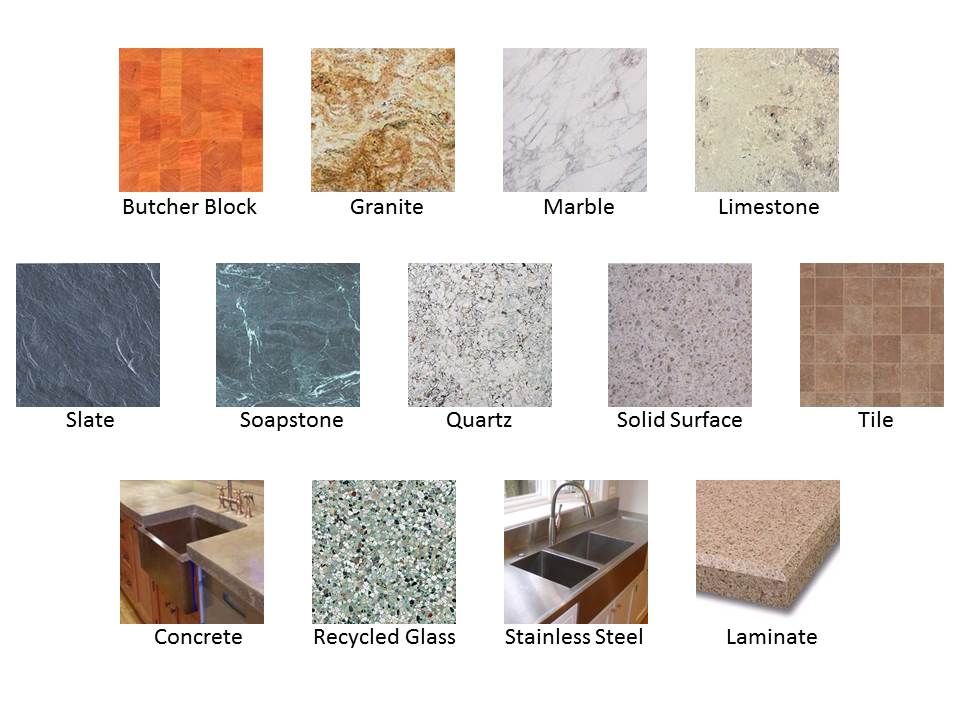Butcher Block Co. compared 13 popular countertop materials on a range of dimensions including aesthetics, resilience to damage, maintenance requirements and sustainability. The materials we chose for this comparison included butcher block of course, plus granite, marble, limestone, slate, soapstone, quartz, solid surface (e.g., Dupont’s Corian™), tile, concrete, recycled glass, stainless steel and laminate.

We rated all the countertop materials shown above on 8 different attributes. The maximum rating awarded on each attribute was 3 bullets. Certainly, we considered the beauty of each material, along with its variegation (i.e., how much its appearance varies). We also rated each material on its resistance to scratches, chips and dings; its need for little or low maintenance; and whether it's natural, sustainable and affordable.

PROS: Natural beauty, variegation, sustainability, affordability, able to be cut upon directly
CONS: Not resistant to heat or stains (although can be sanded and renewed), require regular care and maintenance
PROS: Natural beauty, variegation, durability, low-maintenance
CONS: Expensive, not sustainable or environmentally friendly
PROS: Natural beauty, variegation, low-maintenance
CONS: Susceptible to scratches, chips, dings and stains; expensive, not sustainable or environmentally friendly
PROS: Natural beauty, variegation, low-maintenance, affordable
CONS: Not resistant to stains, soft so can scratch and chip, requires occasional sealing
PROS: Natural, affordable, heat and stain-resistant
CONS: Low variegation, requires application of mineral oil, not sustainable or environmentally friendly
PROS: Resistant to scratches, stains and heat; available in a wide range of colors
CONS: Artificial appearance, can scorch, neither sustainable or friendly to the environment
PROS: Stain-resistant, low-maintenance
CONS: Synthetic, low resistance to heat
PROS: Affordability, heat and stain-resistant
CONS: Can chip and crack
PROS: Durability; resistance to heat, stains and other damage
CONS: Expensive, not particularly environment-friendly
PROS: Beauty and variegation, heat resistance, low-maintenance
CONS: Susceptible to staining
PROS: Heat and stain resistance, sleek look
CONS: No variegation, can suffer dents and scratches
PROS: Very affordable, require little maintenance, high color diversity
CONS: Not resistant to heat, staining or scratching; not natural
Return to our Help Center